The Cloth That Speaks - KANGA
Professor Sharifa Zawawi has kindly provided users of LangMedia with the following collection of photos of kangas. Many photos are accompanied by an English translation of the Swahili saying printed on the cloth. Professor Zawawi writes about the role of the garment known as kanga or leso in her newly released book Kanga: The Cloth That Speaks. The book discusses the history and modern cultural significance of kangas. It also includes many colorful photos of kanga, an entirely new collection from those presented here. For information on how to purchase the book, contact Azaniya Hills Press, 8 Fordham Hill Oval 15C, The Bronx, N.Y.10468; or e-mail: smzawawi@optonline.net.
From the Book Cover

Kanga The Cloth That Speaks
"The garment known today as kanga or leso provides a practical, attractive, comfortable form of dress for a tropical climate. It is also an ancient form of communication: it carries a message. The sayings that appear on kangas reflect Swahili cultural and human values, material and verbal art; they maintain Swahili literary traditions and enrich them; they present a composite of the historic mercantile connection of items of clothing within the wide context of the Indian Ocean."
"Sharifa Zawawi's search for a better understanding of kangas led her to examine the history of the kanga, its design, message and significance for Swahili speaking communities within the modern nations of East Africa and the Gulf states of the Arabian Sea. She illustrates and discusses kangas and messages from Dar es Salaam, Mombasa, Zanzibar and Muscat."
"Dr. Zawawi takes into account the complexity of kanga history and begins to trace anew the development of kanga from cloth to clothing. Kanga inscriptions provide a documentary representation of Swahili social and political forms of discourse. They express the traditional socio-cultural values of the Swahili community while also reflecting the advent of modernity and change. They are an important source for understanding Swahili ideal behavior and the Swahili value system; their content relates to both women and men, young and old. They instruct at the same time that they provide an outlet for emotions and expectations. They are a window to changing values and cultural and political attitudes. The messages printed on the cloth are permanent -– yet of their time. Culture, history, fashion and language are inextricably interwoven in this study of East African dress."
Photos: Page 1
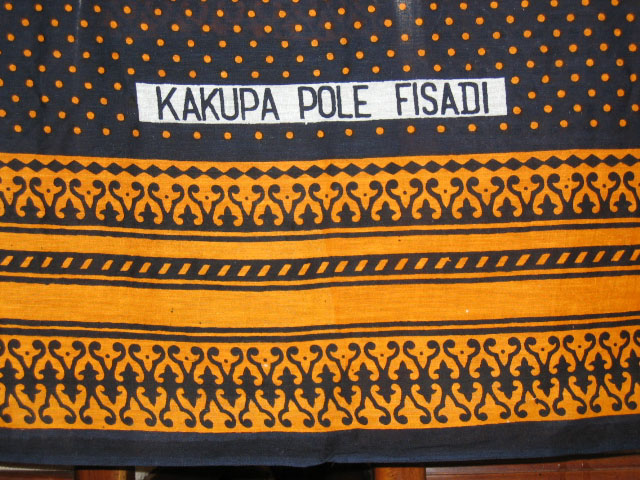
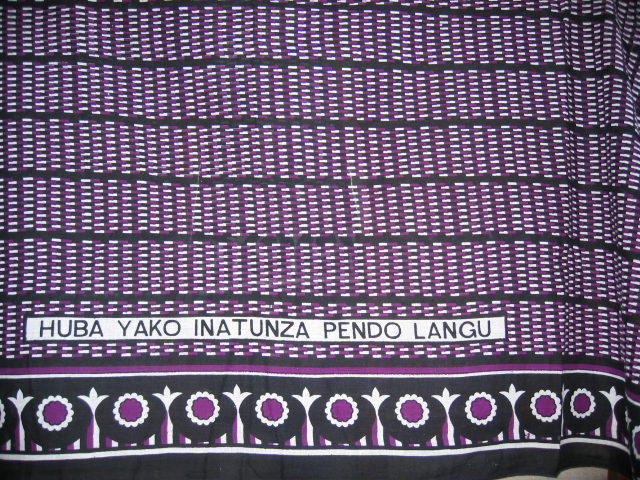
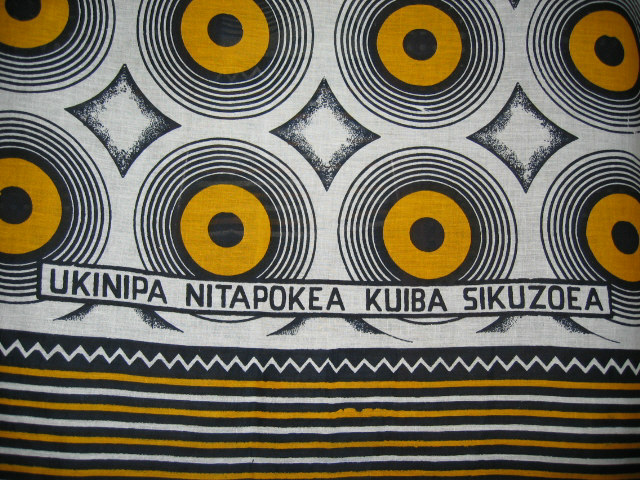
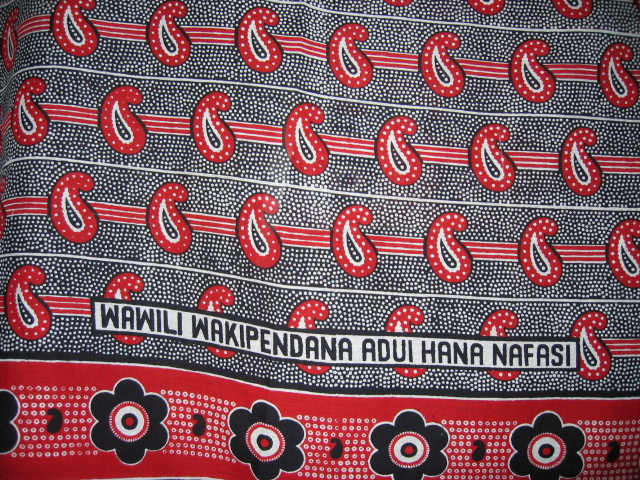
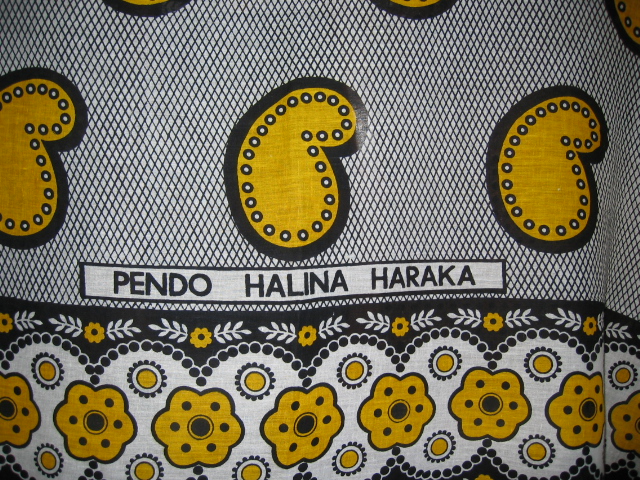
Photos: Page 2
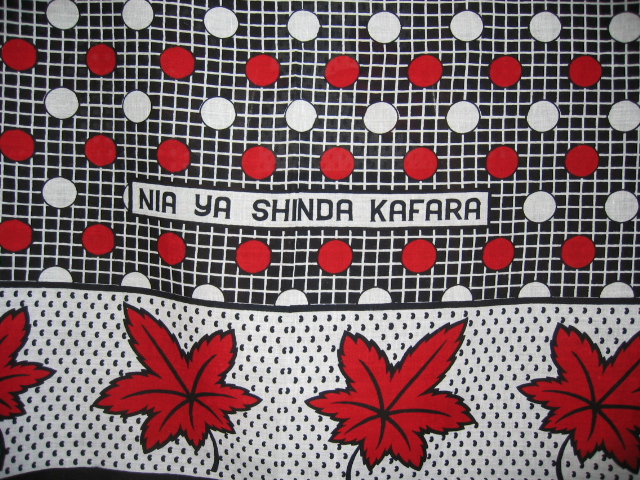
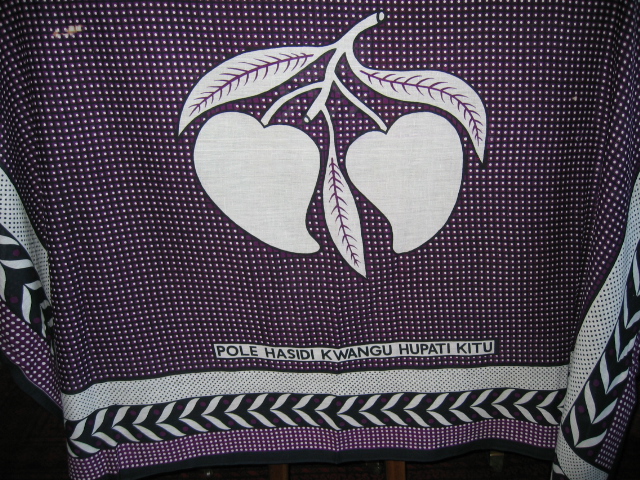
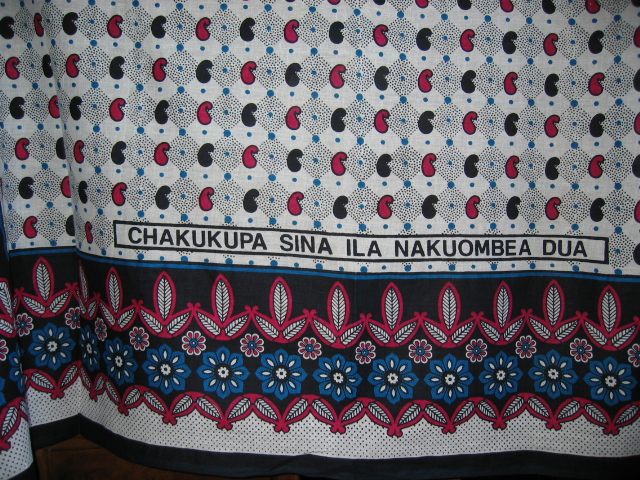
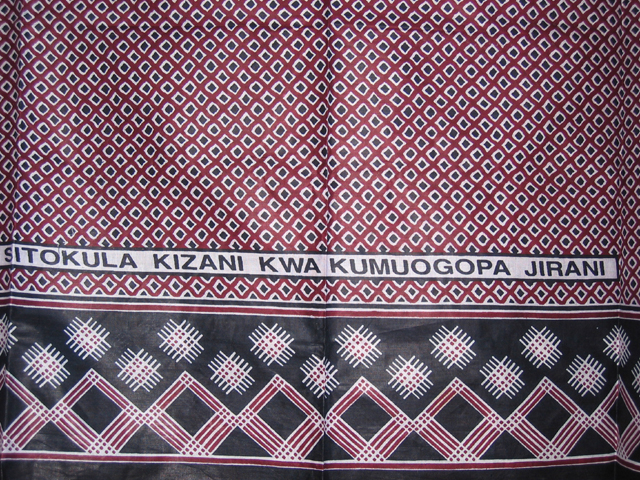
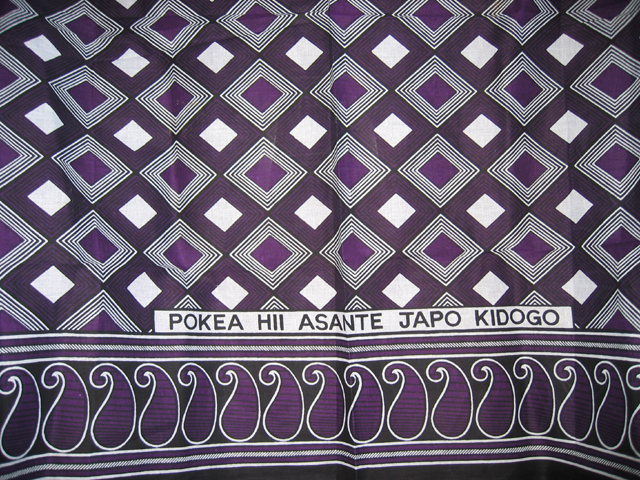
Photos: Page 3
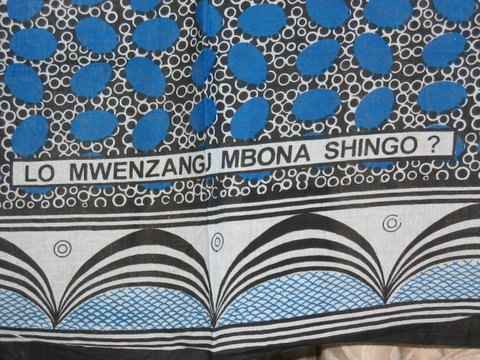
Oh my friend why are you so reluctant?
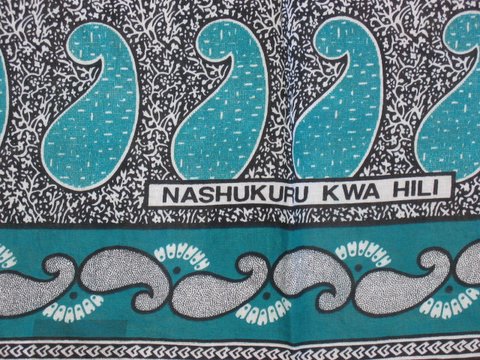
I thank (you) for this
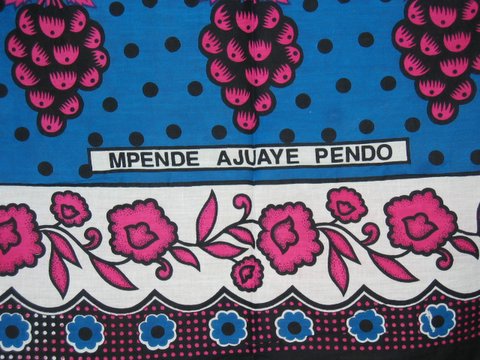
Love the person who understands love
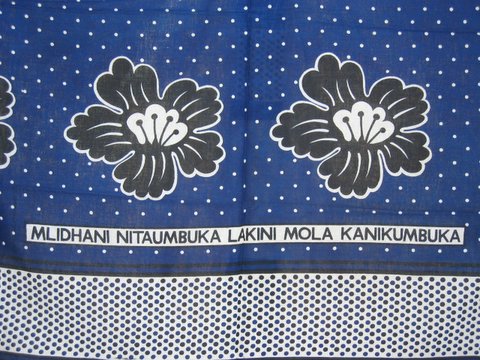
You thought I will be defaced but God has remembered me
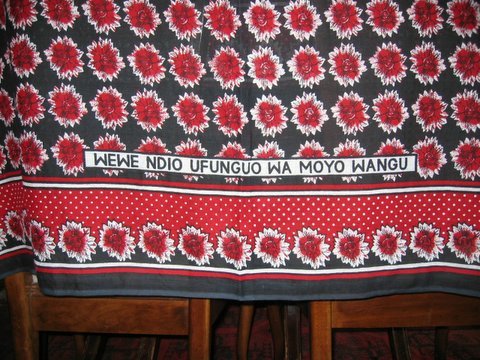
You are the key to my heart
Photos: Page 4
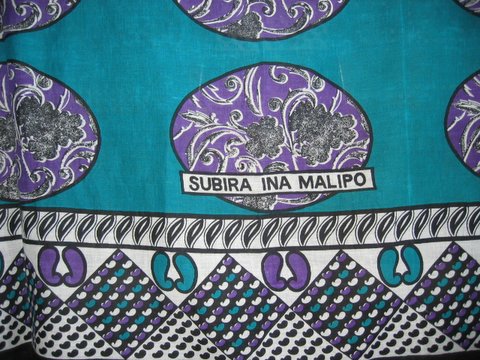
Patience has its reward
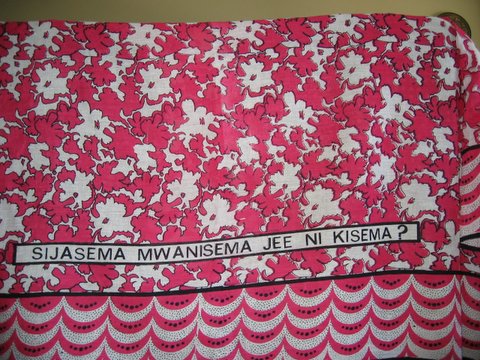
I have said nothing and you gossip about me. What will happen when I do?
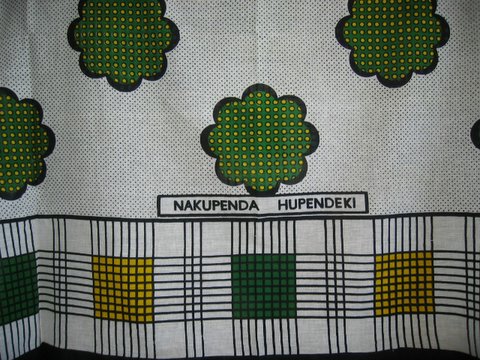
I love you but you are not lovable
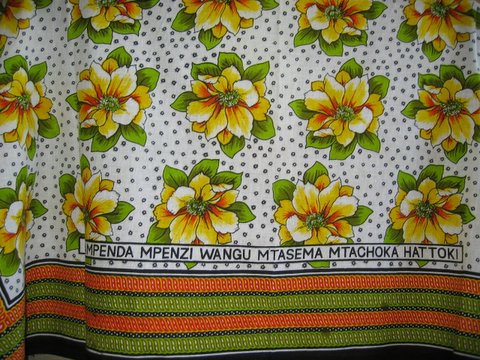
I love my beloved. You will talk until you get tired. He/she will not leave me Lo mwenzangu
Photos: Page 5
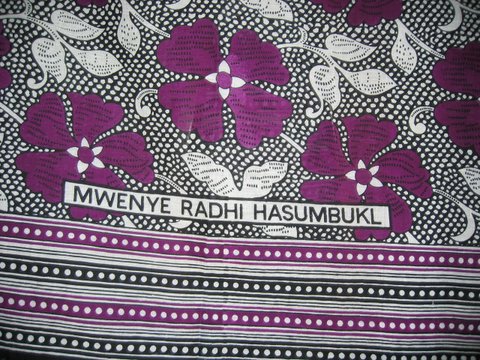
The blessed one does not suffer
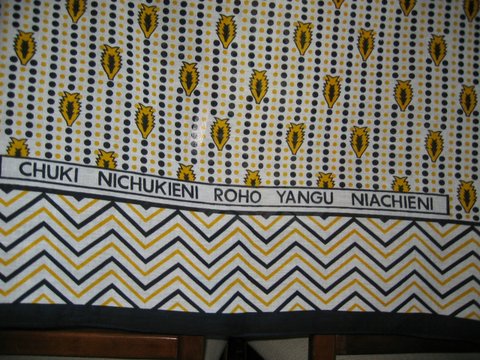
Hate me but do not deprive me of my soul
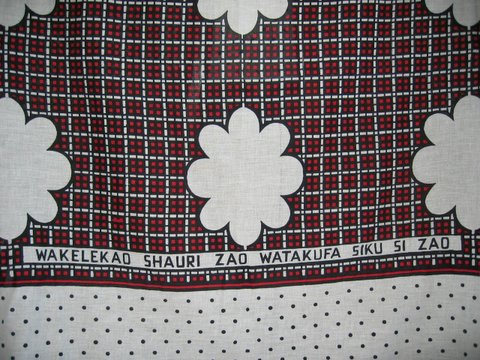
Those who are upset it is up to them. They will die before their time
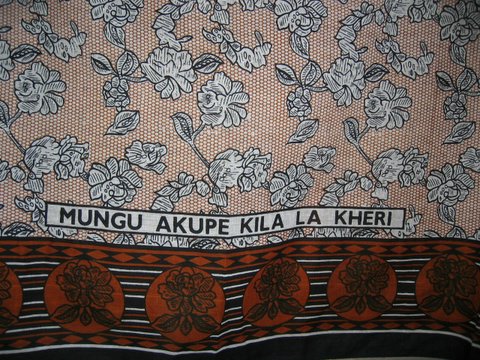
May God give you everything that is good
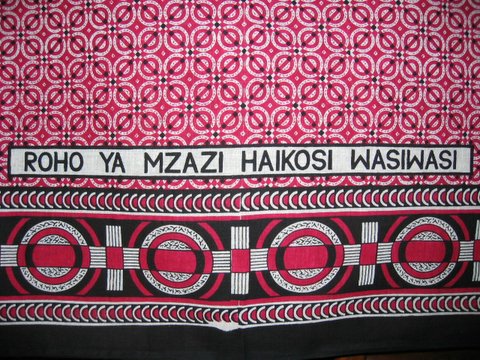
A parent’s heart is never without worries
Photos: Page 6
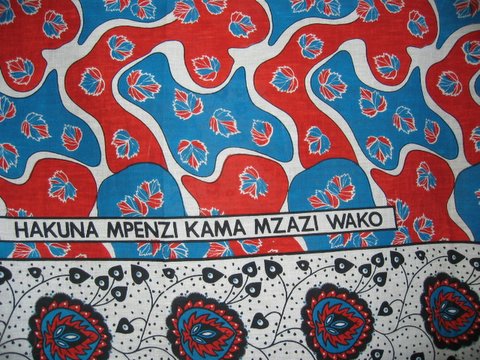
No one loves you more than your parent
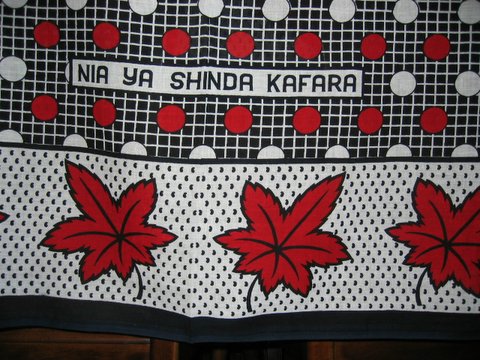
Intention defeats a sacrifice to avert evil
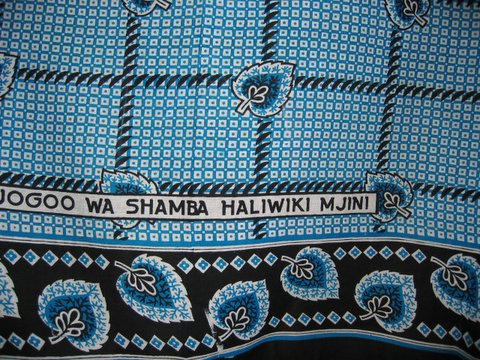
The country rooster does not crow in the town
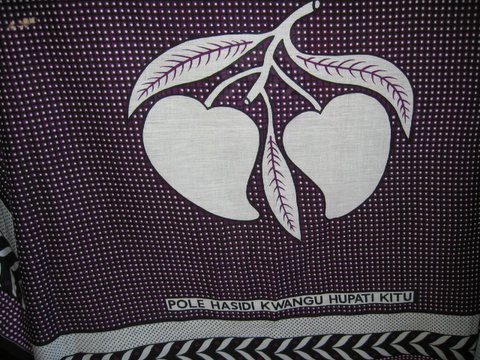
Sorry, envious one. You will get nothing from me
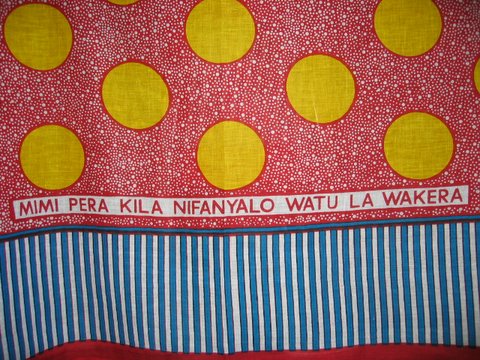
I am a guava. Whatever I do people are irritated
Photos: Page 7
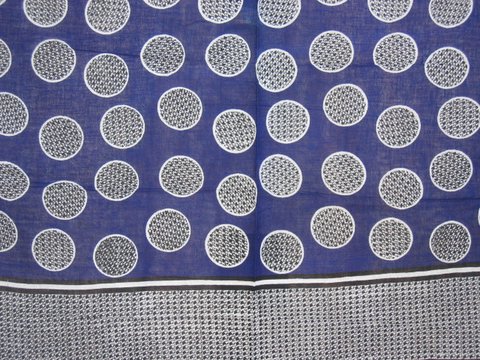
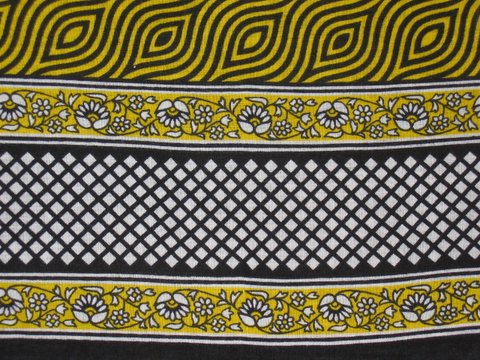
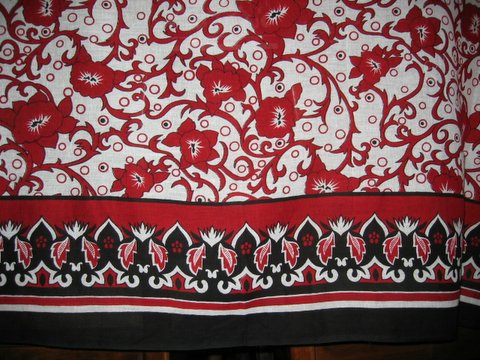
View a video of Professor Zawawi speaking about Kangas
About Professor Zawawi
Sharifa Zawawi is a Professor Emeritus of Classical Languages. She has taught Linguistics, Arabic, Swahili and Middle Eastern Languages and Cultures at The City College of the City University of New York (CUNY), Columbia University and the New York University. She has worked as a language consultant and examiner for several universities in the U.S. She is the author of Kiswahili Kwa Kitendo, Say it in Swahili, Loan words and their Effect on the Classification of Swahili Nominals, and Fast-Track Swahili. With Africa World Press, she has published Kiswahili Kwa Kitendo Vol. I (1980), Learn our Kiswahili Vol. II; Jifunze Kiswahili Chelu (1993), Converse in Kiswahili: Ongea (1991), What's in a Name? Unaitwaje? A Swahili Book of Names (1993) and African Muslim Names: Images and Identities (1998).